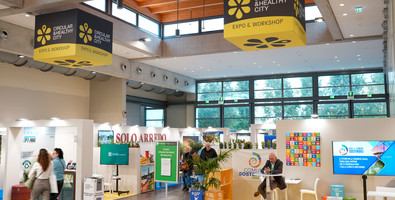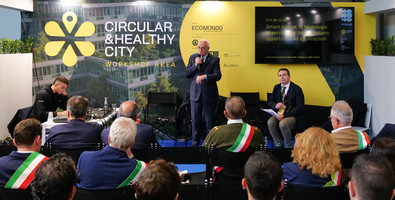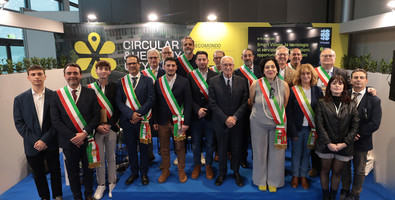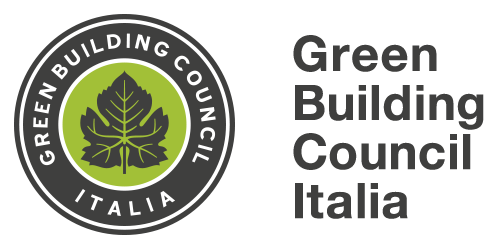Circular Healthy City
Cities currently occupy less than 3% of the Earth's surface but are home to 50% of the population. They are responsible for 75% of the natural resources consumed, 70% of the gas emissions generated but also 70% of the world's GDP.
Hence the need for cities to acquire green infrastructure, and develop a design and management approach to land, its resources, food, waste and urban settlements in order to face the climate change.
Circular Healthy City is the exhibition and virtual space that brings together the most innovative projects, solutions and models of circular and healthy cities implemented internationally.
Four areas were explored at Ecomondo 2024 in terms of both exhibition and content:
>> RECYCLING AND REUSE
- Waste: applications and automations for separate collection 2.0 and reuse
- ISO / ESG / EMAS certifications, consulting and finance
- Water resource conservation and management
>> SUSTAINABLE CONSTRUCTION
- Building: biomaterials, green building systems and components, environmentally friendly products and materials
- Land management: street and urban design, smart districts, urban parks - public green, suburban regeneration, urban planning
>> SUSTAINABLE TRANSPORT
- Mobility: city logistic, last mile logistic, low impact transport
- Territorial security: surveillance and remote surveillance systems, road safety
- ICT: interoperability, IT tools, robotics, cloud computing services, Big Data, connectivity and networks
>> URBAN HEALTH
The sustainable city must improve individual and collective health through health literacy policies, encouraging healthy lifestyles, proposing the implementation of policies aimed at socially responsible companies to promote health in the workplace, and involving public administrators to influence environmental and climatic factors to reduce the risks linked to the development of pollution-related diseases.
AREAS OF DEVELOPMENT

INFRASTRUCTURES

HEALTH

NEW TECHNOLOGIES

BIOMATERIALS
WHO WE INVOLVE

PUBLIC DECISION-MAKERS
mayors, councillors for the environment, land, productive activities, town planning offices and technicians, IT offices and technicians

PROFESSIONALS
architects, engineers, surveyors, geologists, landscape architects, building surveyors, design offices, builders

ADMINISTRATORS
of facilities and works of public interest: health directors, transport and logistics companies, port and airport directors

DIRECTORS
of companies, technical and quality managers, facility managers, utilities, project financiers

EDUCATIONAL INSTITUTIONS
Universities, research centres, technology parks

CITIZENS
CONTENT HIGHLIGHT
![]()
CIRCULAR ECONOMY
challenges and strategies of circular cities
- guidelines and tools to improve the quality and quantity of recycled waste
- circularity of materials towards a zerowaste city
- the role of food in the cities of the future.
![]()
URBAN HEALTH
the role of utilities in the ecological transition of cities
- good practices in health protection and circular use of energy and material resources
- new air quality directive and impact on cities
![]()
SUSTAINABLE CONSTRUCTION
best practices in costructions
- sustainability and personal health in the built environment
- biomaterials and green building: state of the art, best practices and innovations
CONTACT US
Cecilia Cappelli
cecilia.cappelli@iegexpo.it









